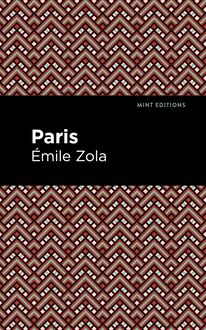-
 Univers
Univers
-
 Ebooks
Ebooks
-
 Livres audio
Livres audio
-
 Presse
Presse
-
 Podcasts
Podcasts
-
 BD
BD
-
 Documents
Documents
-
- Cours
- Révisions
- Ressources pédagogiques
- Sciences de l’éducation
- Manuels scolaires
- Langues
- Travaux de classe
- Annales de BEP
- Etudes supérieures
- Maternelle et primaire
- Fiches de lecture
- Orientation scolaire
- Méthodologie
- Corrigés de devoir
- Annales d’examens et concours
- Annales du bac
- Annales du brevet
- Rapports de stage
La lecture à portée de main
Vous pourrez modifier la taille du texte de cet ouvrage
Découvre YouScribe en t'inscrivant gratuitement
Je m'inscrisDécouvre YouScribe en t'inscrivant gratuitement
Je m'inscrisEn savoir plus
Vous pourrez modifier la taille du texte de cet ouvrage
En savoir plus

Description
Lourdes (1894) is a novel by French author Émile Zola. Lourdes is the first installment in Zola’s celebrated Three Cities Trilogy. Published toward the end of Zola’s career, the trilogy is an ambitious, sweeping study of one man’s struggle with faith in political, religious, and social life. Following his protagonist Abbé Pierre Froment, Zola provides a striking portrait of the soul of modern man in crisis with itself and with an ever-changing world. Lourdes opens as Abbé Froment departs on a journey from Paris to the holy city of Lourdes. Accompanied by his childhood love, a woman who was paralyzed in an accident at the age of thirteen, Froment hopes to rediscover his faith and to reestablish his position in a beleaguered Catholic Church. There, they meet a series of diverse pilgrims, all of them dissatisfied, all of them searching for something to change or to hold onto. For Froment, this journey begins as a way to help an old friend and becomes a chance at redeeming his wayward soul. At Lourdes, surrounded by desperate, yet faithful people, he begins to remember what brought him to God in the first place. Inspired by his experiences there, he wonders if one priest could change the Church for the better. With a beautifully designed cover and professionally typeset manuscript, this edition of Émile Zola’s Lourdes is a classic work of French literature reimagined for modern readers.
Sujets
Informations
| Publié par | Mint Editions |
| Date de parution | 11 mai 2021 |
| Nombre de lectures | 1 |
| EAN13 | 9781513286082 |
| Langue | English |
| Poids de l'ouvrage | 2 Mo |
Informations légales : prix de location à la page 0,0500€. Cette information est donnée uniquement à titre indicatif conformément à la législation en vigueur.
Extrait
Lourdes
Émile Zola
Lourdes was first published in 1894.
This edition published by Mint Editions 2021.
ISBN 9781513281063 | E-ISBN 9781513286082
Published by Mint Editions®
minteditionbooks.com
Publishing Director: Jennifer Newens
Design & Production: Rachel Lopez Metzger
Project Manager: Micaela Clark
Translated by Ernest A. Vizetelly
Typesetting: Westchester Publishing Services
C ONTENTS T HE F IRST D AY I. P ILGRIMS AND P ATIENTS II. P IERRE AND M ARIE III. P OITIERS IV. M IRACLES V. B ERNADETTE T HE S ECOND D AY I. T HE T RAIN A RRIVES II. H OSPITAL AND G ROTTO III. F OUNTAIN AND P ISCINA IV. V ERIFICATION V. B ERNADETTE ’ S T RIALS T HE T HIRD D AY I. B ED AND B OARD II. T HE “O RDINARY ” III. T HE N IGHT P ROCESSION IV. T HE V IGIL V. T HE T WO V ICTIMS T HE F OURTH D AY I. T HE B ITTERNESS OF D EATH II. T HE S ERVICE AT THE G ROTTO III. M ARIE ’ S C URE IV. T RIUMPH —D ESPAIR V. C RADLE AND G RAVE T HE F IFTH D AY I. E GOTISM AND L OVE II. P LEASANT H OURS III. D EPARTURE IV. M ARIE ’ S V OW V. T HE D EATH OF B ERNADETTE —T HE N EW R ELIGION
THE FIRST DAY
I
P ILGRIMS AND P ATIENTS
T he pilgrims and patients, closely packed on the hard seats of a third-class carriage, were just finishing the “Ave maris Stella,” which they had begun to chant on leaving the terminus of the Orleans line, when Marie, slightly raised on her couch of misery and restless with feverish impatience, caught sight of the Paris fortifications through the window of the moving train.
“Ah, the fortifications!” she exclaimed, in a tone which was joyous despite her suffering. “Here we are, out of Paris; we are off at last!”
Her delight drew a smile from her father, M. de Guersaint, who sat in front of her, whilst Abbe Pierre Froment, who was looking at her with fraternal affection, was so carried away by his compassionate anxiety as to say aloud: “And now we are in for it till to-morrow morning. We shall only reach Lourdes at three-forty. We have more than two-and-twenty hours’ journey before us.”
It was half-past five, the sun had risen, radiant in the pure sky of a delightful morning. It was a Friday, the 19th of August. On the horizon, however, some small, heavy clouds already presaged a terrible day of stormy heat. And the oblique sunrays were enfilading the compartments of the railway carriage, filling them with dancing, golden dust.
“Yes, two-and-twenty hours,” murmured Marie, relapsing into a state of anguish. “ Mon Dieu ! what a long time we must still wait!”
Then her father helped her to lie down again in the narrow box, a kind of wooden gutter, in which she had been living for seven years past. Making an exception in her favour, the railway officials had consented to take as luggage the two pairs of wheels which could be removed from the box, or fitted to it whenever it became necessary to transport her from place to place. Packed between the sides of this movable coffin, she occupied the room of three passengers on the carriage seat; and for a moment she lay there with eyes closed. Although she was three-and-twenty; her ashen, emaciated face was still delicately infantile, charming despite everything, in the midst of her marvellous fair hair, the hair of a queen, which illness had respected. Clad with the utmost simplicity in a gown of thin woollen stuff, she wore, hanging from her neck, the card bearing her name and number, which entitled her to hospitalisation , or free treatment. She herself had insisted on making the journey in this humble fashion, not wishing to be a source of expense to her relatives, who little by little had fallen into very straitened circumstances. And thus it was that she found herself in a third-class carriage of the “white train,” the train which carried the greatest sufferers, the most woeful of the fourteen trains going to Lourdes that day, the one in which, in addition to five hundred healthy pilgrims, nearly three hundred unfortunate wretches, weak to the point of exhaustion, racked by suffering, were heaped together, and borne at express speed from one to the other end of France.
Sorry that he had saddened her, Pierre continued to gaze at her with the air of a compassionate elder brother. He had just completed his thirtieth year, and was pale and slight, with a broad forehead. After busying himself with all the arrangements for the journey, he had been desirous of accompanying her, and, having obtained admission among the Hospitallers of Our Lady of Salvation as an auxiliary member, wore on his cassock the red, orange-tipped cross of a bearer. M. de Guersaint on his side had simply pinned the little scarlet cross of the pilgrimage on his grey cloth jacket. The idea of travelling appeared to delight him; although he was over fifty he still looked young, and, with his eyes ever wandering over the landscape, he seemed unable to keep his head still—a bird-like head it was, with an expression of good nature and absent-mindedness.
However, in spite of the violent shaking of the train, which constantly drew sighs from Marie, Sister Hyacinthe had risen to her feet in the adjoining compartment. She noticed that the sun’s rays were streaming in the girl’s face.
“Pull down the blind, Monsieur l’Abbe,” she said to Pierre. “Come, come, we must install ourselves properly, and set our little household in order.”
Clad in the black robe of a Sister of the Assumption, enlivened by a white coif, a white wimple, and a large white apron, Sister Hyacinthe smiled, the picture of courageous activity. Her youth bloomed upon her small, fresh lips, and in the depths of her beautiful blue eyes, whose expression was ever gentle. She was not pretty, perhaps, still she was charming, slender, and tall, the bib of her apron covering her flat chest like that of a young man; one of good heart, displaying a snowy complexion, and overflowing with health, gaiety, and innocence.
“But this sun is already roasting us,” said she; “pray pull down your blind as well, madame.”
Seated in the corner, near the Sister, was Madame de Jonquiere, who had kept her little bag on her lap. She slowly pulled down the blind. Dark, and well built, she was still nice-looking, although she had a daughter, Raymonde, who was four-and-twenty, and whom for motives of propriety she had placed in the charge of two lady-hospitallers, Madame Desagneaux and Madame Volmar, in a first-class carriage. For her part, directress as she was of a ward of the Hospital of Our Lady of Dolours at Lourdes, she did not quit her patients; and outside, swinging against the door of her compartment, was the regulation placard bearing under her own name those of the two Sisters of the Assumption who accompanied her. The widow of a ruined man, she lived with her daughter on the scanty income of four or five thousand francs a year, at the rear of a courtyard in the Rue Vanneau. But her charity was inexhaustible, and she gave all her time to the work of the Hospitality of Our Lady of Salvation, an institution whose red cross she wore on her gown of carmelite poplin, and whose aims she furthered with the most active zeal. Of a somewhat proud disposition, fond of being flattered and loved, she took great delight in this annual journey, from which both her heart and her passion derived contentment.
“You are right, Sister,” she said, “we will organise matters. I really don’t know why I am encumbering myself with this bag.”
And thereupon she placed it under the seat, near her.
“Wait a moment,” resumed Sister Hyacinthe; “you have the water-can between your legs—it is in your way.”
“No, no, it isn’t, I assure you. Let it be. It must always be somewhere.”
Then they both set their house in order as they expressed it, so that for a day and a night they might live with their patients as comfortably as possible. The worry was that they had not been able to take Marie into their compartment, as she wished to have Pierre and her father near her; however neighbourly intercourse was easy enough over the low partition. Moreover the whole carriage, with its five compartments of ten seats each, formed but one moving chamber, a common room as it were which the eye took in at a glance from end to end. Between its wooden walls, bare and yellow, under its white-painted panelled roof, it showed like a hospital ward, with all the disorder and promiscuous jumbling together of an improvised ambulance. Basins, brooms, and sponges lay about, half-hidden by the seats. Then, as the train only carried such luggage as the pilgrims could take with them, there were valises, deal boxes, bonnet boxes, and bags, a wretched pile of poor worn-out things mended with bits of string, heaped up a little bit everywhere; and overhead the litter began again, what with articles of clothing, parcels, and baskets hanging from brass pegs and swinging to and fro without a pause.
Amidst all this frippery the more afflicted patients, stretched on their narrow mattresses, which took up the room of several passengers, were shaken, carried along by the rumbling gyrations of the wheels; whilst those who were able to remain seated, leaned against the partitions, their faces pale, their heads resting upon pillows. According to the regulations there should have been one lady-hospitaller to each compartment. However, at the other end of the carriage there was but a second Sister of the Assumption, Sister Claire des Anges. Some of the pilgrims who were in good health were already getting up, eating and drinking. One compartment was entirely occupied by women, ten pilgrims closely pressed together, young ones and old ones, all sadly, pitifully ugly. And as nobody dared to open the windows on account of the consumptives in the carriage, the heat was soon felt and an unbearable odour arose, set free as it were by the jolting of the train as it went its way at express speed.
They had said their chaplets at Juvisy; and six o’clock was striking, and they were rushing like a hurricane past the st
-
 Univers
Univers
-
 Ebooks
Ebooks
-
 Livres audio
Livres audio
-
 Presse
Presse
-
 Podcasts
Podcasts
-
 BD
BD
-
 Documents
Documents
-
Jeunesse
-
Littérature
-
Ressources professionnelles
-
Santé et bien-être
-
Savoirs
-
Education
-
Loisirs et hobbies
-
Art, musique et cinéma
-
Actualité et débat de société
-
Jeunesse
-
Littérature
-
Ressources professionnelles
-
Santé et bien-être
-
Savoirs
-
Education
-
Loisirs et hobbies
-
Art, musique et cinéma
-
Actualité et débat de société
-
Actualités
-
Lifestyle
-
Presse jeunesse
-
Presse professionnelle
-
Pratique
-
Presse sportive
-
Presse internationale
-
Culture & Médias
-
Action et Aventures
-
Science-fiction et Fantasy
-
Société
-
Jeunesse
-
Littérature
-
Ressources professionnelles
-
Santé et bien-être
-
Savoirs
-
Education
-
Loisirs et hobbies
-
Art, musique et cinéma
-
Actualité et débat de société
- Cours
- Révisions
- Ressources pédagogiques
- Sciences de l’éducation
- Manuels scolaires
- Langues
- Travaux de classe
- Annales de BEP
- Etudes supérieures
- Maternelle et primaire
- Fiches de lecture
- Orientation scolaire
- Méthodologie
- Corrigés de devoir
- Annales d’examens et concours
- Annales du bac
- Annales du brevet
- Rapports de stage

















